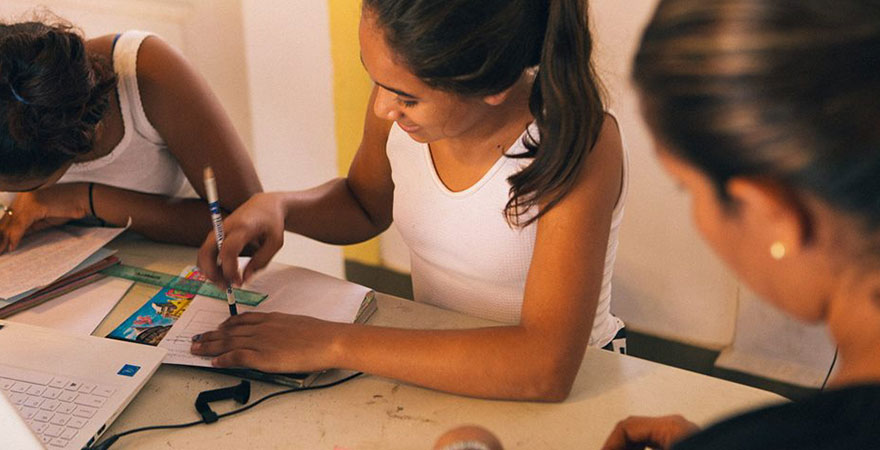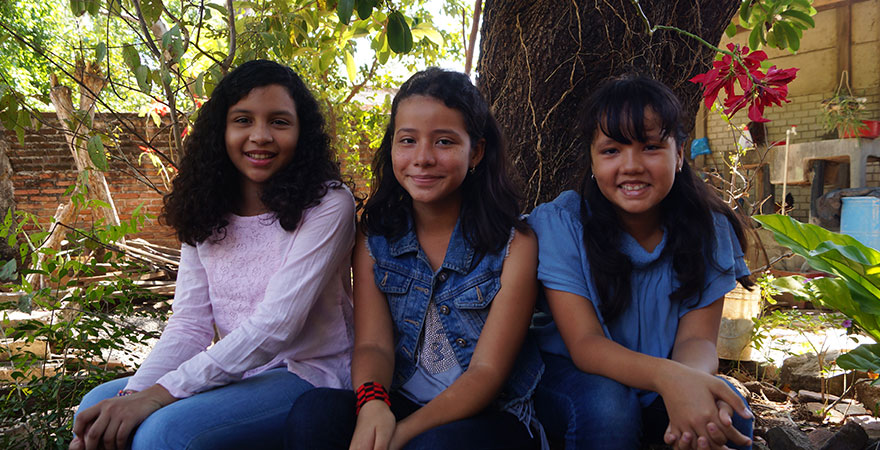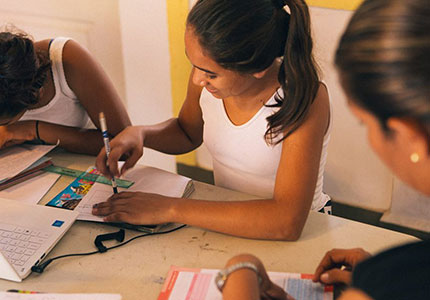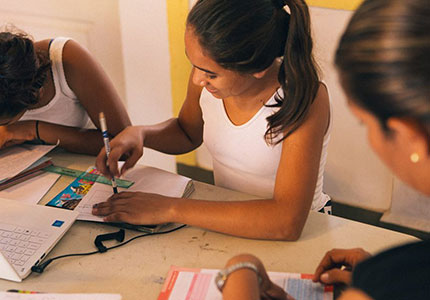This article was authored by Adela Ubau*
[tweetable] Education of girls and women is not a privilege, it is a human right.[/tweetable].
Every year, on 8th March, we commemorate all the generations of women who have fought and continue their fight for their equality in both social participation and development. This is an everyday fight which still has a long way to go. However, despite the efforts made for equal opportunities for women and men, there are still many challenges to overcome. Among these, we have a key component to human development: quality education. The low rates of school enrollment in elementary education, combined with the increasing dropout rate as well as the shortage of qualified teachers, evidence the challenge to overcome. In this context, grearter access to education requires strong political efforts and adcocacy to improve the quality of the actual education system.

Education is an important driver for development, as well as one of the most effective tool to reduce poverty, improve health and achieve gender equality.
Quality education throughout life is a human right. Equally, education contributes to the success of all development objectives. Making girls stay in school is one of the most effective ways to avoid teenage marriage or motherhood. Education is also a fundamental factor in the reduction of birth and death rates. When a teenager becomes a mother, her health, education, earning potential and her entire future is jeopardized. This increases the possibility of a life immersed in poverty. According to UNFPA 2017, if inequality is not addressed urgently and poorer women are empowered to make independent decisions about their lives, countries could face situations of instability and see their internal peace threatened and therefore, their development objectives.
In Latin America, girls and adolescents represent 55% of households’ members, which indicates that attention to their problems is an issue that affects the majority of the population. However, more than a third of the homes where women and adolescent girls live are in a situation of poverty. This situation should trigger an alert to prioritise the development of agendas or advocacy initiatives due to the close link that exists between dropping out of school and pregnancy at an early age.
It is important to highlight that the main reason of young people dropping out of school is linked to the economic restrictions they face, followed by the lack of interest in studies now replaced by house activities related to motherhood. In the case of teenagers who have become mothers, the abandonment of studies is due to the birth of a child also affected by the gender discrimination in schools.
"The education of girls and women is an inalienable right, a matter of justice. Without education they are deprived of being citizens with a voice in their society." Malala

Although there have been notable progress during the last decade, there are still 505 million girls in the world who do not have access to education. UNESCO 2017 highlighted that there are 758 million illiterate people around the world, of whom two thirds are women. Only 1% of the poorest girls manage to finish elementary education, 35% of out-of-school children live in conflict zones.
"If gender equality is not achieved for girls in the area of education, the world has no chance of achieving many of the ambitious goals that have been proposed in terms of health, social justice and development." Kofi Annan
Thus, prioritizing education is defending human rights. We cannot thrivein a society that limits access to resources, to an option of attending schools and opportunities for a better future for girls and women.
Education is an essential economic asset:
- Each grade of school that is lost will result in a decrease of between 10% and 20% in the future incomes for girls.
- Countries could improve economic growth per capita by about 0.3% per year if they achieve equality in the number of children enrolled.
- Women with education are better prepared enabling them to refuse practices such as female genital mutilation, child marriage and domestic abuse.
[tweetable] If we educate girls, we will have strong women with a voice to transform our world.[/tweetable].
***
*Adela Ubau is a OYW Ambassador from Nicaragua. She is an economist and project specialist, entrepreneur and consultant in gender and entrepreneurship. Her passion is to contribute to the empowerment of girls and women, mainly in vulnerable areas. She is passionate about working on women self-esteem, financial education, entrepreneurship and security. Connect with Adela by LinkedIn or Facebook.



